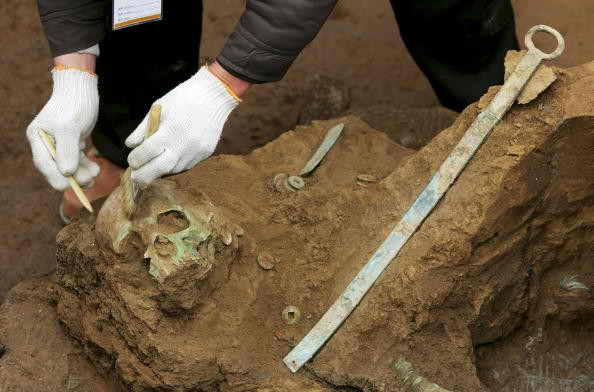The State Administration for Cultural Heritage (SACH) blamed the local government for the lack of control that led to tomb looting.
Ni Fangliu, a Nanjing-based archeology expert, said that there is a high demand for the historical relics and is fueled by private museums and art buyers who purchase the stolen artifacts.
China.cn reported that the tomb of an imperial concubine in the Zunhua's Easter Qing Tomb was raided by 9 thieves and 12 items were stolen. The incident happened on Oct. 31, 2015.
Another tomb was raided in May. This tomb was for Empress Xiaozhuang and the thieves were not caught.
A SACH official said, "The local government and the administration department should improve their management abilities as well as their sense of responsibility."
Ni said that the thievery of the tombs is done by highly skilled individuals with advanced tools. Lack of government support for archaeological preservation makes it impossible to catch the perpetrators.
He said, "It is difficult for the government to control such a large place, and some tomb thieves have more advanced technology than the government."
Guo Dashun, former director of the Liaoning Provincial Institute of Archaeology, said, "Many private museums have a large demand for relics, which gives tomb looting a huge market."
Ni said that if museums stop buying stolen relics, then there will not be a demand for them, and will put an end to tomb raiding.
He explained, "If these museums refuse to take the illegal relics or report the thieves to the police, then no one is going to give them relics anymore."
He also said that there should be a heavier punishment given to people involved in looting. Involvement in tomb raiding was punishable by death until 2011 because the government wanted to "lessen the number of executions."



























